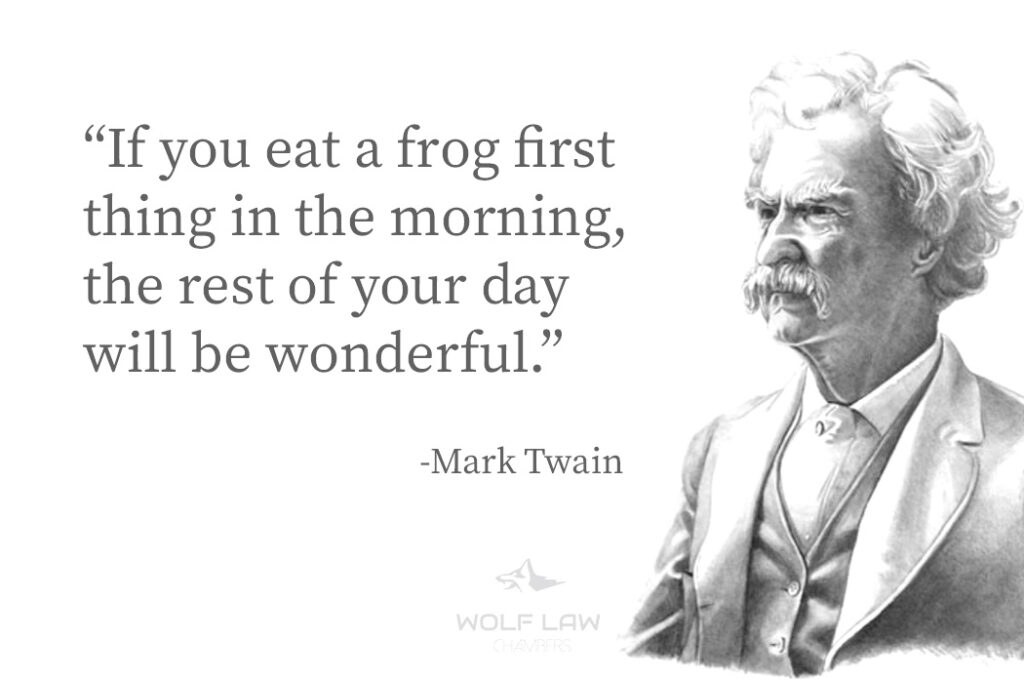MENTAL HEALTH
What Lawyers Should Know About Renting Shared Office Space: Legal Considerations and Lease Terms
As the demand for flexible workspaces continues to rise, shared office spaces have become a popular choice for businesses of all sizes, including law firms. Renting shared office space can offer many benefits, such as reduced overhead costs and a collaborative work environment. However, lawyers should be mindful of the legal considerations and lease terms to ensure their practice remains compliant and secure.
1. Understand the Lease Agreement When entering into a lease for shared office space, it’s essential to carefully review the agreement. Pay attention to details like the lease duration, rent payment terms, and the level of responsibility for shared services, such as cleaning and security. Lawyers should ensure that the lease protects their practice’s interests and outlines clear terms for common areas, such as meeting rooms and kitchens.
2. Confidentiality and Privacy Law firms handle sensitive client information, making privacy a top priority. Before signing a lease, confirm that the shared space offers secure, private working environments. Ensure the agreement includes provisions for confidentiality, and understand how the space provider safeguards the security of digital and physical files. Non-disclosure agreements with the co-working provider can offer additional layers of protection.
3. Insurance and Liability It’s crucial for lawyers to secure proper insurance coverage when renting shared office space. Depending on the lease terms, the space provider may cover general liability, but you may need to carry professional liability insurance. Make sure the lease clearly defines the extent of the landlord’s and tenant’s insurance obligations, including what happens in case of damage, theft, or accidents in shared spaces.
4. Comply with Local Regulations Shared office spaces are subject to local zoning and business regulations, which vary by jurisdiction. Lawyers should ensure that the space complies with all relevant laws, especially if they intend to see clients in the office. Verify that the space meets safety, accessibility, and business licensing requirements to avoid potential legal issues.
5. Termination and Exit Clauses Flexibility is one of the primary benefits of renting shared office space, but it’s essential to understand the termination clauses. Ensure that the lease allows for easy termination in case the firm’s needs change. Having a clear exit strategy can help avoid long-term commitments that may no longer be suitable for the practice.
Conclusion Renting shared office space can be an excellent option for law firms seeking flexibility and cost savings. By reviewing the lease agreement carefully, ensuring privacy and confidentiality, securing the right insurance, complying with regulations, and understanding termination clauses, lawyers can set themselves up for success in a shared office environment. The right shared office space can foster growth and collaboration without compromising your firm’s legal responsibilities or client trust.
Creating a Professional Setup in a Coworking Space: Tips for Lawyers
Coworking spaces are becoming increasingly popular among professionals, including lawyers. These spaces offer flexibility, cost-efficiency, and opportunities for networking. However, setting up a professional and effective workspace in a shared environment requires strategic planning. Here are some tips for lawyers looking to create a professional setup in a coworking space:
1. Choose the Right Coworking Space
Not all coworking spaces are created equal. When selecting one, consider:
- Privacy: Look for spaces with private offices or soundproof meeting rooms to handle sensitive client discussions.
- Location: A centrally located space with easy access for clients and colleagues.
- Amenities: Ensure the space provides high-speed internet, printing services, and other essentials like conference rooms.
2. Invest in Quality Equipment
Having reliable tools is key to maintaining professionalism:
- Laptop and Accessories: A high-performance laptop, noise-canceling headphones, and a portable charger are must-haves.
- Mobile Setup: Use apps and software that enable seamless communication and document management.
- Backup Options: Invest in a secure external hard drive or cloud storage for client files.
3. Create a Personalized Yet Professional Desk Setup
Your desk should be organized and reflect professionalism:
- Use a sleek laptop stand, a notebook, and minimalistic decor.
- Avoid clutter, as it can detract from your focus and the impression you give to clients or peers.
4. Establish a Virtual Office
For lawyers, maintaining a professional image extends beyond the physical setup:
- Business Address: Many coworking spaces offer mailing services; use them to create a professional address.
- Phone Services: Consider a dedicated business phone number with call forwarding options.
5. Leverage Meeting Rooms for Client Interactions
- Book conference rooms for client meetings to ensure confidentiality and professionalism.
- Familiarize yourself with the booking system to secure rooms when needed.
6. Maintain Confidentiality and Security
Client confidentiality is paramount in legal work:
- Use encrypted email services and secure client communication tools.
- Lock your laptop and files whenever you step away from your desk.
- Be cautious about phone or video calls in shared areas.
7. Network and Build Connections
One of the advantages of coworking spaces is the opportunity to connect with other professionals:
- Attend networking events or join coworking groups to build relationships.
- Share your expertise in workshops or discussions to establish your authority in the legal field.
8. Set Boundaries and Optimize Productivity
- Use noise-canceling headphones or apps like white noise generators to minimize distractions.
- Set clear working hours and communicate them to colleagues and clients.
Conclusion
Coworking spaces offer a unique environment for lawyers to work flexibly while maintaining a professional image. By selecting the right space, investing in quality tools, and focusing on organization and security, you can create a workspace that supports your practice’s growth and client trust. With thoughtful planning, coworking can be an excellent solution for modern legal professionals.
Creating a Productive Work Environment in a Shared Office: A Lawyer’s Guide
The rise of shared office spaces has redefined the modern work environment. While these spaces offer flexibility and cost-efficiency, they also come with unique challenges, especially for professionals like lawyers who handle sensitive information and require focused work sessions. Here’s a guide to help lawyers thrive in a shared office setting.
1. Choose the Right Space
Not all shared offices are created equal. When selecting a coworking space, prioritize those with:
- Private rooms or soundproof pods for confidential discussions.
- Strong security protocols to protect sensitive client data.
- Quiet zones or designated areas for focused work.
2. Establish Clear Boundaries
Shared spaces often blur the lines between personal and professional. To maintain productivity:
- Clearly communicate your availability to others using signals like desk signs or online statuses.
- Use noise-canceling headphones to minimize distractions.
- Avoid engaging in non-essential conversations during work hours.
3. Leverage Technology
Maximize your productivity by investing in tools that help you work efficiently:
- Case management software for organizing client information securely.
- Encrypted communication tools for maintaining client confidentiality.
- Time management apps to stay on top of deadlines.
4. Build Relationships Wisely
Networking is one of the greatest perks of shared offices. However, as a lawyer, you need to:
- Balance openness with discretion to avoid disclosing sensitive information.
- Engage in professional conversations that align with your expertise.
- Collaborate only when it adds value to your practice.
5. Prioritize Self-Care
Shared offices can sometimes be high-energy environments. Stay grounded by:
- Taking regular breaks to recharge.
- Personalizing your workspace to create a sense of comfort.
- Practicing mindfulness or using stress-management techniques.
6. Stay Compliant
Lawyers must adhere to strict ethical standards and legal requirements, even in a shared office. Ensure:
- Client files are securely stored, both physically and digitally.
- Conversations about cases are held in private spaces.
- Compliance with local bar association rules regarding shared workspaces.
Conclusion
Working in a shared office as a lawyer can be both rewarding and challenging. By choosing the right environment, setting clear boundaries, leveraging technology, and adhering to professional standards, you can create a workspace that supports your productivity and fosters professional growth.
Cost Considerations: The Final Advantages of Renting vs. Owning Office Space for New Lawyers
When starting a legal practice, new lawyers face a pivotal decision: should they rent or buy office space? Given the unique demands and uncertain growth stages of a fledgling law firm, understanding the cost implications of both options is critical. Here’s a breakdown of the financial factors that make renting an attractive choice for new legal professionals:
1. Lower Initial Investment
Buying office space requires significant upfront costs, including a down payment, loan fees, and potentially high closing costs. For most new lawyers, who are managing startup expenses and potentially still paying off student loans, this large capital requirement can be a major barrier. Renting, on the other hand, usually only involves a security deposit and the first month’s rent, preserving cash flow for critical early-stage investments, like technology, staff, and marketing.
2. Predictable Monthly Expenses
Ownership might sound appealing for asset-building, but it often comes with fluctuating expenses: property taxes, maintenance, and unexpected repairs. In contrast, leasing provides predictable monthly costs, allowing for easier budgeting. Many lease agreements bundle utilities, maintenance, and janitorial services, meaning new lawyers can focus on their practice without sudden, unexpected expenses.
3. Flexibility to Scale
New law firms often need time to understand their growth trajectory and target market. Renting allows lawyers to choose a space that fits their current needs with the flexibility to scale up or down as the business changes. Leasing short-term or in flexible coworking spaces lets firms relocate or expand as needed, a level of adaptability that buying can’t offer without major cost implications.
4. Less Administrative Burden
Owning property comes with a long list of responsibilities—from building upkeep to managing legal compliance issues—which can quickly drain time and resources. Renting transfers much of this burden to the landlord, allowing lawyers to focus on building their client base. When starting a practice, minimizing distractions and administrative demands is key, making renting an efficient option.
5. Access to Prime Locations at Lower Costs
Renting gives new lawyers access to desirable, high-visibility locations that may otherwise be prohibitively expensive to buy in. A well-located office can boost brand perception and client convenience, enhancing a new firm’s ability to attract clients and build its reputation without the heavy investment required to buy in these areas.
Final Thoughts
For new lawyers, renting provides financial flexibility, manageable costs, and operational advantages that are hard to match with ownership. While buying can be a smart long-term goal, renting can be the most effective path to a successful start in the legal field.
Starting your firm on solid financial footing is essential, and renting office space can offer the stability and flexibility needed to grow and thrive.
Building Your Brand: How an Office Address in a Prestigious Location Boosts Credibility
In today’s fast-paced business landscape, first impressions often set the tone for future relationships. Whether you’re a budding entrepreneur, a small business owner, or part of a growing enterprise, your office address is more than just a logistical necessity—it’s a strategic asset.
Why Location Matters
When potential clients or partners assess your brand, they consider your reputation, services, and—surprisingly—your location. An office in a prestigious or recognizable area instantly conveys professionalism, success, and trustworthiness. It shows that you’re serious about your business and ready to deliver top-notch services.
The Psychological Edge
A prime location creates a perception of quality. For example, an office in a financial hub like Wall Street or a creative district like Silicon Valley speaks volumes about your industry alignment and ambition. This can influence how stakeholders perceive your capabilities, even before you’ve spoken a word.
Networking Opportunities
Prestigious locations are often bustling with like-minded professionals, innovative companies, and thought leaders. Being in the heart of such activity can open doors to partnerships, collaborations, and learning opportunities that may not be as accessible elsewhere.
Client Convenience
An easily accessible and prominent address reassures clients that they’re dealing with an established and reliable entity. It’s a subtle yet powerful way to enhance their confidence in your brand.
Alternatives for Small Businesses
If renting an office in a high-profile location feels out of reach, consider options like co-working spaces or virtual office services. These solutions provide the same address benefits without the financial burden of traditional leases.
The Takeaway
Your office location isn’t just where you work; it’s a key part of your branding strategy. Choosing a prestigious address can elevate your credibility, attract clients, and position you as a leader in your field.
Remember, building your brand is a combination of small yet impactful choices. An address is one of them, and it could be the one that sets you apart from the competition.
What’s your experience with location and branding? Let’s discuss in the comments!
March is Brain Health Awareness Month: A Guide for Legal Professionals on Protecting Their Brain Health
In the demanding world of legal practice, where the intellect is the primary tool of the trade, maintaining brain health is not just beneficial—it’s essential. March, recognized as Brain Health Awareness Month, serves as a timely reminder for legal professionals to prioritize and safeguard their cognitive well-being. The relentless pressure, long hours, and high stakes associated with legal careers can take a toll on one’s mental and neurological health. However, with the right strategies, it’s possible to thrive in the profession while also protecting and enhancing brain health. Here are practical steps legal professionals can take:
1. Prioritize Sleep
Sleep is fundamental to brain health. It aids in memory consolidation, cognitive function, and stress reduction. Legal professionals should aim for 7-9 hours of quality sleep per night, establishing a regular sleep schedule and creating a restful environment free from screens and disruptions.
2. Adopt a Brain-Healthy Diet
Nutrition plays a critical role in cognitive function. Incorporate a diet rich in omega-3 fatty acids (found in fish), antioxidants (found in berries and leafy greens), and whole grains. These nutrients support brain cell health, reduce inflammation, and enhance cognitive functions.
3. Stay Physically Active
Regular physical exercise is not just good for the body; it’s also crucial for the brain. Activities like walking, yoga, swimming, or cycling increase blood flow to the brain, which can help enhance cognitive abilities and reduce the risk of cognitive decline.
4. Manage Stress
Chronic stress is harmful to brain health, impairing memory and cognitive functions. Legal professionals should develop effective stress management techniques, such as mindfulness meditation, deep breathing exercises, or engaging in hobbies and activities that relax and rejuvenate the mind.
5. Continuous Learning and Mental Stimulation
The legal profession inherently promotes mental stimulation through constant learning and problem-solving. However, engaging in activities outside one’s legal expertise, like learning a new language, playing a musical instrument, or tackling puzzles, can further enhance brain plasticity and cognitive reserve.
6. Foster Social Connections
Social interaction is vital for mental health, helping to reduce stress and prevent cognitive decline. Networking with colleagues, participating in community activities, or simply spending quality time with friends and family can boost emotional and brain health.
7. Regular Health Check-ups
Preventive health care can identify and mitigate risk factors for cognitive decline, such as hypertension, diabetes, and high cholesterol. Regular check-ups allow for early intervention and management of these conditions, protecting brain health in the long run.
8. Limit Alcohol and Avoid Smoking
Excessive alcohol consumption and smoking can adversely affect brain health. Moderating alcohol intake and quitting smoking can significantly reduce the risk of cognitive decline and improve overall health.
Conclusion
For legal professionals, maintaining brain health is not just a personal health goal; it’s a professional imperative. By adopting these strategies, legal practitioners can protect their most valuable asset—their brain. March, as Brain Health Awareness Month, is the perfect time to start incorporating these practices into one’s lifestyle. Remember, a healthy brain is not just about enhancing performance in the legal profession; it’s about improving quality of life overall.
Are You Always Running Out of Time?
Are the current standards you have set in place the most efficient and viable in achieving your goals? Are you finding the right balance between your work and personal lives? Are you always pushing back deadlines and rescheduling matters? These are some of the questions you must ask yourself when assessing your legal practice. For lawyers, time is of the essence, no pun intended. They must prioritize their schedules in order to complete tasks on their daily agenda. There is always a constant influx of tasks and prioritization means everything when your most important assignment could be the next one you receive. Having the right skillset, tools, balance, flexibility, and procedures in place can simplify even the most complex matters allow lawyers to execute their plans proficiently. Such practices enable a firm to become more productive and this increased productivity is inevitably going to result in increased profits.
Let’s examine a billing trend report to determine how much billable time lawyers are actually getting out of their workday. Lawyers are working long hours to meet productivity goals but are only billing for 29% of their workday on average [1]. There is definitely a discrepancy in this figure and how occupied a typical lawyer’s schedule is. That means legal professionals are spending time carrying out tasks that do not equate to billable time. These tasks include, but are not limited to, administrative functions that are required in running your practice. Law school teaches lawyers how to carry out legal work and put their valuable legal expertise to practice. It is this knowledge and capability that allows lawyers to bill their clientele and earn an honest living. Yet, all law firms include tasks which need to be performed in order for a practice to remain functional but are not billable.

A simple business principle that can be implemented is outsourcing these tasks and leaving more time for yourself to work on assignments which can generate billable time. Bookkeeping and office administrative tasks can take up large portions of a workday but by outsourcing them to staff and paying for a particular service, more time is left for lawyers to focus on the legal matters specific to their line of work.
In realizing the proper techniques that need to be applied for running a more efficient legal practice, a quote from Mark Twain came up numerous times.
If you eat a frog first thing in the morning, the rest of your day will be wonderful.
Mark Twain [2]
and
If you have to eat a frog, don’t look at it for too long.
Mark Twain [2]

It is important to note that certain tasks can be daunting, and lawyers may push them back because they may take up most of their day. According to Twain, it is these tasks that could hold one back. Complete your most difficult assignment first thing in the morning, and suddenly, the other tasks become minute and less challenging. In doing so, you are able to prioritize your assignments, and create to-do lists for yourself in collaboration with your calendar [3].

Next, eliminating distractions will give you a sense of clarity in your work/practice. It is healthy to take breaks throughout your day and refresh but being unproductive is unjustifiable. Another healthy practice is taking care of your emotional and physical health. Being mentally and physically fit will contribute to your success just as much as your skillset and business intelligence will [4]. Being able to attract clients is not the sole determinate of success for a legal practice. It is equally important to be able to work on matters for those clients on a time efficient basis. If that includes taking a break, so be it. One should be open to the idea of stepping away from their work. Research shows that our brains are capable of solving problems while we are not actively working on them [5]. Hence, stepping away from your practice may, in fact, prove to be more beneficial than harmful.
Implementing technology may also prove to be an effective practice tool in time management. Using the most adept practice management software, communication tools, and digital services can lighten the burden on you and allow you to allocate time more freely. That simple advantage separates those attorneys who surrender focus on one aspect of their work and those who are all over the place.
A workspace committed to providing lawyers with the excellent communication tools and services to improve efficiency, is that of Wolf Law Chambers. Located in the heart of Mississauga, the chambers aids lawyers through the administrative aspects of their practice. This helps facilitate growth and expansion for the lawyers in their area of practice. Come in and see for yourself how Wolf Law Chambers is innovating time management in the practice of law. Visit us as 90 Matheson Blvd. West, Suite 101 and feel free to join us for all our upcoming events and workshops.

-Narvir Goindi
Mental health and wellbeing in the legal profession
In a profession that demands for you to be meticulous throughout every moment of your day, there is an enormous amount of pressure that undeniably exists. Can the continuous pressure of rushed deadlines, liabilities for oneself and others, dreadfully long work hours, stiff competition, dismissal of emotion from sensitive client matters, isolation, and/or sleep deprivation take a toll on a lawyer’s mental health and wellbeing? They most definitely can! The legal profession is one that requires psychological stability, but mental health is often neglected by those in the profession.
Lawyers are typically immersed in the vocational and theoretical aspects of their trade but are not equipped with the tools to maintain balance and focus in high stress professional environments [1]. In order to address the situation, professionals must concur to destigmatize the current views surrounding mental health. Only then can we open the door for discussion, resolution, and change the status quo.
Former President of the American Bar Association (ABA) had the following to say:
Lawyers, judges and law students are faced with an increasingly competitive and stressful profession. Studies show that substance use, addiction, and mental disorders, including depression and thoughts of suicide—often unrecognized—are at shockingly high rates [1].
Former President of the American Bar Association (ABA)
These findings are not surprising considering the daunting challenges that surround the legal profession. About 44% of lawyers recently surveyed by the ABA said that they would not recommend their profession to a young person [2]. That is quite the irony, now isn’t it; diving into a career path that you would advise others not to partake in. It is vital to understand why the profession has become so toxic and why lawyers are among the top three professionals to face substance abuse issues [2]. Only by doing so, can we develop solutions and coping mechanisms which may build resiliency amongst lawyers and prepare them to tackle stressors more effectively. Neglecting the data and the stigmatization of such health concerns is not going to solve the issue at hand, and has probably done more harm than good.

In order to address a problem, its existence must first be acknowledged. Only then, can we proceed with devising a solution and executing it to the fullest extent available. Approximately 58% of lawyers in Canada have faced stress and burnout, 48% have experienced anxiety, and 26% have experienced depression [3]. These statistics were derived from a survey conducted in 2012 but they are not irrelevant to the concern that exists in the profession regarding mental health today. Lawyers are definitely on the edge with the type of matters they deal with on the daily and it may be of benefit to implement coping mechanisms to prevent such conditions of stress/burnout, anxiety, and depression. On April the 6th of this year, the Canadian Bar Association hosted its first-ever Health and Wellness Conference, a pivotal step in the right direction [3]. The conference dove into some of the most pressing issues faced by lawyers with an emphasis placed on mental health concerns. Traditionally, those in the legal field had turned a blind eye to the day to day stresses involved with their jobs, and the potential detrimental effects they had on the psychological well being of individuals. But as more awareness continues to be raised, lawyers will realize that they are definitely not facing these issues alone, creating room for the discussion and implementation of preventative measures.
Some practices include, but are not limited to, adequate sleep, exercise, external support, social participation, vacations/extended breaks, mindfulness, flexibility, workload management, and/or seeking professional help [4]. The definition of mindfulness, as written in the Oxford Dictionary of English is, “A mental state achieved by focusing one’s awareness on the present moment, while calmly acknowledging and accepting one’s feelings, thoughts, and bodily sensations, used as a therapeutic technique [5].” To dwell in the present and acknowledge one’s mental and physical state of being constitutes to being mindful. In doing so, one is able to immediately understand how they feel, and asses if there is need to take action. Once that is taken care of, there are many coping mechanisms that can be put to practice. Rest is definitely vital in performance and sometimes you may have to step away from your professional practice to take a break and revitalise your mind and body [4]. Speaking to loved ones can lessen the burden and help get a load off your chest. It has even proven to reduce the body’s physiological response to stressful events [4]. Lawyers can speak to loved ones, whose opinions they regard and weigh considerably, to help them cope with a dilemma. If that does not work to any avail, they can always pursue the services of a certified mental health professional. There are many support groups, within and outside the legal community, where they can get aid. Next, remaining flexible allows one to meet the shifting demands of their environment [4]. This is definitely relevant for lawyers who deal with a variety of complex matters. Focusing solely on the aspects of a situation you can reasonably expect to influence, paves the way for the process of eliminating things that may induce stress [4]. Last, but definitely not the least important, is the ability to manage one’s workload. Do not overload your schedule with client files and matters you cannot handle. It is completely rational to ask for help and outsource your work to create balance and become more efficient. Schedule yourself in such a manner that you can handle your workload and balance life outside of work. Do not be overwhelmed, so that you give yourself more openings to remain stressed.
To conclude, mental health is a serious concern for lawyers and legal professionals alike. If you ever feel that coping with adversity is too formidable a task, please seek help immediately! Remain mindful of your physiological and mental well being, acknowledging any negative changes in mood, behaviour, and habits. Then, carefully cultivate and strategize techniques to cope with such changes. You may be able to do so using techniques already in place or by seeking professional help. The Canadian Bar Association’s Legal Profession Assistance Conference (LPAC) says that they are, “Dedicated to helping lawyers, judges and law students and their families with personal, emotional, health and lifestyle issues through a network of Lawyer Assistance Programs, a national 24-hour helpline and through provincial programs [4].” Do not neglect your mental health and wellbeing! Please take initiative and use these resources which are so readily available.
[1] Lefkowitz, Dena. ‘Investing in Lawyer Well-Being-Why It Matters’, (2019), The Legal Intelligencer. https://www.law.com/thelegalintelligencer/2019/08/14/investing-in-lawyer-well-being-why-it-matters/ [2] Kane, Sally. ‘The 10 Challengers About a Career As a Lawyer’ (2019) the balance careers. https://www.thebalancecareers.com/lawyer-career-drawbacks-2164594 [3] Ashley Pollack, Candice. ‘Mental health in the legal profession: Are we asking the right questions’ (2019) The Canadian Bar Association. https://www.cba.org/Sections/Young-Lawyers/Articles/2019/Mental-health-in-the-legal-profession-Are-we-aski [4] Kelly, Owen. ‘Coping with Stress and Avoiding Burnout: Techniques for Lawyers’. (2009) The Canadian Bar Association. https://www.cba.org/Publications-Resources/CBA-Practice-Link/Work-Life-Balance/Health-Wellness/Coping-with-Stress-and-Avoiding-Burnout-Techniques [5] Oxford Dictionary of English. 3d ed. Sub verbo. ‘Mindfulness’.-Narvir Goindi







